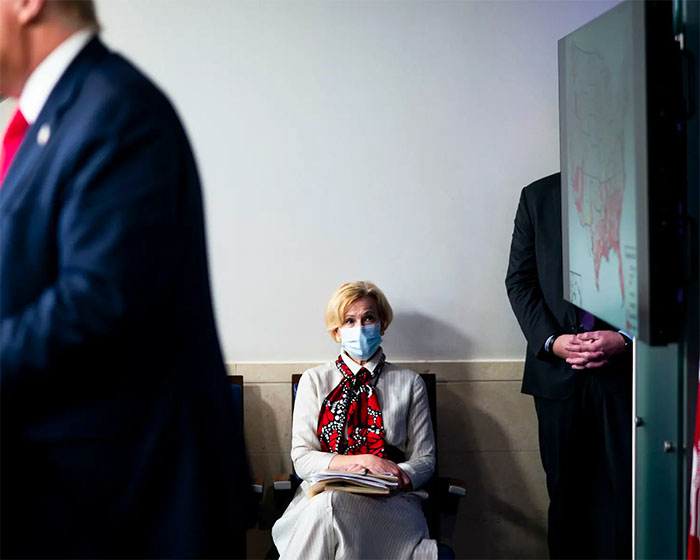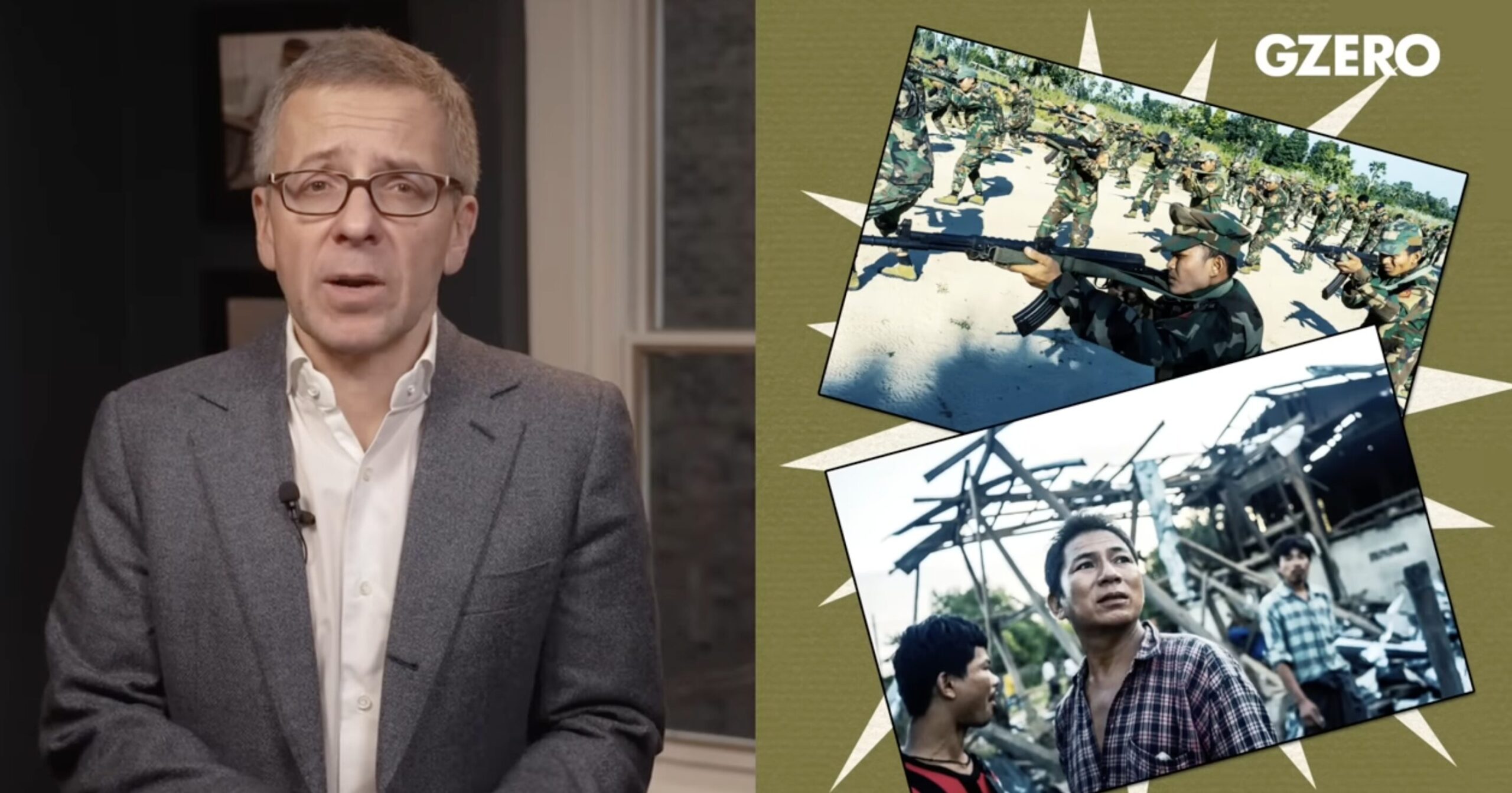
Peter Zeihan: Europe Goes Nuclear
We’ve got two major developments in Eurasia. We’re talking about Ukraine disabling two ships in the Caspian Sea and Poland getting EU approval to build…
Thought Leader: Peter Zeihan

SILENT INVASION: The Untold Story of the Trump Administration, Covid-19, and Preventing the Next Pandemic Before It’s Too Late
By Deborah Birx
On March 2, 2020, Dr. Deborah Birx took up her new position as coronavirus response coordinator within the White House Coronavirus Task Force. She was fresh off a plane from South Africa, where she had been busy in her sixth year as the global AIDS coordinator for the United States, overseeing the President’s Emergency Plan for AIDS Relief (PEPFAR), a well-regarded and efficacious initiative begun by George W. Bush. The word “coordinator” is an equivocal title under the best of bureaucratic circumstances, let alone in the Trump White House, and amid the urgency of this new pandemic, arising to occlude the older one (AIDS), Birx had no time or opportunity to define the title before assuming it. She had said yes to “a job I didn’t seek but felt compelled to accept,” she recounts in “Silent Invasion.” She wasn’t the chair of this White House task force; Alex Azar, the secretary of Health and Human Services, held that position until he was replaced after one month by Vice President Pence. Birx had an office in the West Wing but almost no staff, and her only leverage was persuasion. Her account of how that played out — it’s no spoiler to say, how poorly that played out — is earnest, exhaustive and excruciating.
A representative point of inflection occurred within her first week. She sat in a meeting, prepared to hear Robert Redfield, the director of the Centers for Disease Control and Prevention, present detailed data showing where the virus was in America at that point — data that, she assumed, would be specific to counties, municipalities and ZIP codes, and would include positive test rates and hospitalization rates, so that efforts could be focused against localized outbreaks and projections could be made as to where the disease might explode next. What she and her colleagues got was a one-page C.D.C. handout, lacking any granular detail. “I pressed the flats of my hands into my eyes and shook my head,” she tells us. “I had expected something very different.” Advanced data-reporting structures and procedures, such as she and her PEPFAR team had helped African nations develop over years, did not exist in the United States, though they would be badly needed within the coming days. It wasn’t the last time Birx would deliver a face-palm reaction, literally or figuratively, to her new colleagues and bosses.
She did that to Trump himself, somewhat more discreetly, on April 23, 2020, as she sat against a side wall in the White House briefing room while he extolled, before assembled reporters, the idea of using disinfectant chemicals taken internally as a possible treatment against the virus. Did he propose that Americans drink bleach? It wasn’t clear that he didn’t. If such disinfectants could kill SARS-CoV-2 on a tabletop, as Trump had been told, why not? “Knocks it out in a minute,” he said. “One minute.” So perhaps the doctors should try injection. “It would be interesting to check that,” the president opined, with no sign of joking (as he claimed later). Birx froze, hands clenched on her lap. You can see her there even now, in video preserved on YouTube. “I looked down at my feet and wished for two things: something to kick,” she writes, “and for the floor to open up and swallow me whole.”
By that date, she and her more reliable colleagues on the task force, the physicians Redfield and Anthony Fauci, had achieved something useful: persuading the president to countenance a 15-day partial shutdown recommendation, then a 30-day extension, under the slogan “Stop the Spread”; the government seemed to be taking the viral threat seriously. “The president’s disinfectant remark could unravel all that,” Birx recalls thinking, “and at the worst possible time.” When Trump turned to her for comment on the potential benefits of disinfectant, and also of some form of sterilizing light — sunlight or beams of pure UV radiation or who knows — she answered, “Not as a treatment.” Birx didn’t, as she had hoped, vanish through the floor, but she did vanish from the flow chart of White House influence around that time. The daily news conferences ended, and she found herself marginalized throughout the rest of her tenure as task force coordinator — right up until Jan. 19, 2021. Why did she remain in the job? Because Trump and his political advisers didn’t want to fire her, which could have caused some bad publicity during an election year, and she didn’t want to quit. “I am not a quitter,” she writes, one of many self-testimonials with which she bolsters herself throughout the book.
Instead, she began a series of low-profile trips outside the Beltway, flying into various states with her trusted data maven Irum Zaidi, renting a car (evidently) to make connections and dropping in on governors, universities, public health officials and local media outlets, from Arizona to Florida to New Hampshire; eventually she visited 44 states. During these visits, she sounded three themes repeatedly, as she sounds them over and over again in this book: the need for more Covid testing, especially “sentinel testing” of young people reporting no symptoms, who nonetheless could be infected and transmitting the virus among their families and communities; more masking by everybody; and more social distancing, especially by avoidance of large indoor gatherings.
These three basic forms of intervention, Birx argued tirelessly — first in the White House, then on her road trips and as she continues to argue now, amid the Omicron phase of the pandemic — are essential, though not sufficient, defenses against a virus as insidious as this one. To presume that vaccines have now solved the problem totally is a mistake, she stresses, because of the lingering unknowns (how long will vaccine-induced immunity last? how many humans will remain unvaccinated? what fresh hell might new variants bring?) and the formidable capacity of this virus to change and adapt. Her three cornerstone measures — the continued sentinel testing, plus the resumption of masking and the avoidance of indoor gatherings whenever surges return — will remain necessary, she warns, so long as the virus remains capable of that one nefarious trick: transmission from asymptomatic but infected people. In plainer words, silent spread. That’s the silent invasion of her title.
Although her time within the Trump White House was in most ways an agonizing debacle, Birx makes a good case that her efforts there, in partnership with Fauci and Redfield and Stephen Hahn of the F.D.A. and a few other science-minded colleagues, plus support from Mike Pence (of whom she speaks well), yielded some significant mitigation of the national catastrophe. The disease professionals cared more about what their data said than what the election polls or the market indexes did, and they tried to apply that flow of data (always insufficient, for shortage of testing and of genome sequencing to detect variants) to stopping the virus, which is what made them unpopular in the West Wing — what caused an ignorant and self-absorbed president to close his mind and turn away. Birx’s final act as the coronavirus response coordinator, as she saw National Guard forces mustered in Washington’s streets to help keep order during the Biden-Harris inauguration, was to recommend testing those crowded, tent-dwelling troops.
“In far too many ways, we were all being tested,” she notes wryly. More than 370,000 Americans died of Covid-19 during 2020, but without the insistent, politically naïve (by her own account) and epidemiologically sophisticated voice of Deborah Birx on the inside during much of that time, and out on the hustings for the rest of it, the toll would probably have been even worse. She was given an impossible task, and she did not fail completely. It sounds like a noble epitaph in a sorry time.
Peter Zeihan: Europe Goes Nuclear
We’ve got two major developments in Eurasia. We’re talking about Ukraine disabling two ships in the Caspian Sea and Poland getting EU approval to build…
Thought Leader: Peter Zeihan
Dr. Sanjay Gupta’s Top Health Stories of 2025
From the resurgence of measles to a new way to treat pain, 2025 was a challenge for public health while still offering moments of hope. Sanjay…
Thought Leader: Sanjay Gupta
Ian Bremmer: The state of global conflict in 2025
On GZERO World, Ian Bremmer takes a hard look at the biggest global crises and conflicts that defined our world in 2025 with CNN’s Clarissa…
Thought Leader: Ian Bremmer

